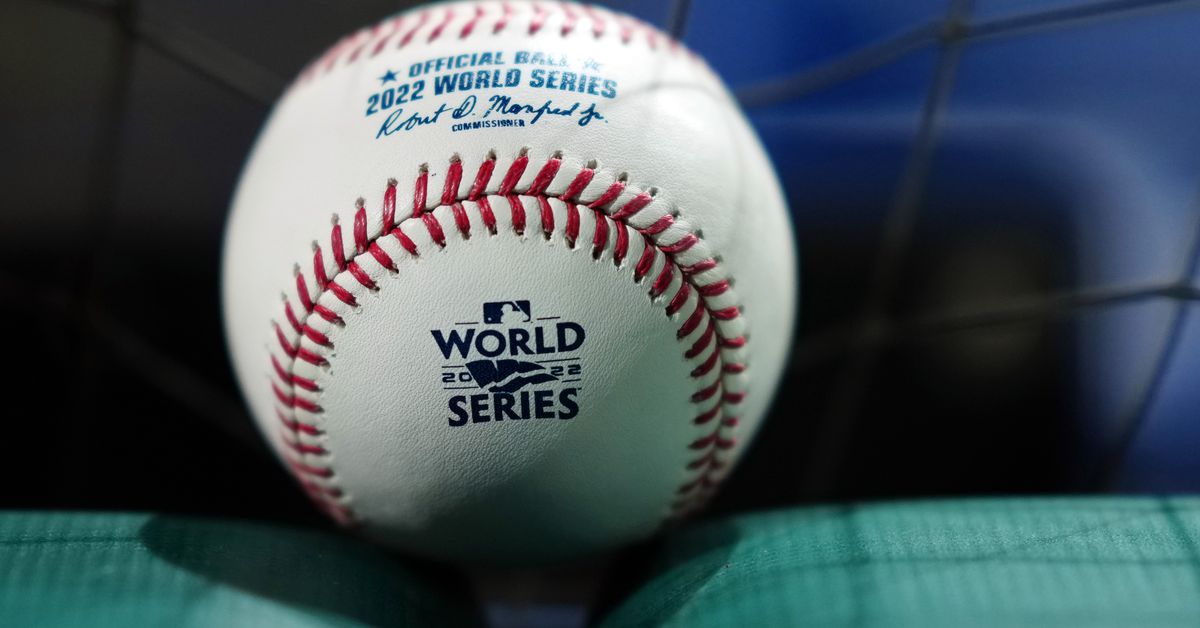Baseball Enthusiasts: how many games in a baseball season

Do you ever wonder how many games it takes to make a how many games in a baseball season.
Well, get ready to dive into the fascinating world of baseball season lengths. In this article, we will explore the historical evolution of season length, the number of games played by different leagues, and the impact of playoffs on the total number of games.
Get ready to discover the ins and outs of baseball seasons like never before.
The Historical Evolution of Baseball Season Length
You might be interested to know that the number of games in a baseball season has evolved over time. Exploring season length variations reveals that in the early days of baseball, seasons consisted of as few as 60 games. However, as the popularity of the sport grew, so did the number of games played. By the mid-20th century, seasons were typically 154 games long.
An interesting factor that impacted the game count was player strikes. Player strikes, such as the 1994-1995 strike, resulted in the cancellation of games and shortened seasons. In the case of the 1994 strike, it led to the cancellation of the entire postseason, making it the first time since 1904 that the World Series wasn’t played.
Exploring the Different Baseball Leagues and Their Game Numbers
The different baseball leagues have varying numbers of games that complete a season. Each league has its own unique structure and game count, catering to the preferences and needs of its players and fans. Here are some examples:
- Major League Baseball (MLB)
- Regular season: 162 games
- Postseason: varies depending on the number of rounds and teams involved
- Nippon Professional Baseball (NPB) in Japan
- Regular season: 143 games
- Postseason: two rounds of playoffs
- Korean Baseball Organization (KBO) in South Korea
- Regular season: 144 games
- Postseason: three rounds of playoffs
These differing game counts allow each league to create a balance between player performance, fan engagement, and financial considerations. It also adds to the excitement and anticipation as teams compete to secure their spot in the playoffs and ultimately the championship.
How Many Regular Season Games Do Major League Baseball Teams Play
Major League Baseball teams play a total of 162 regular season games each season. However, the COVID-19 pandemic has had a significant impact on the number of games played in recent years.
In 2020, the regular season was shortened to just 60 games due to health and safety concerns. This was a substantial decrease from the usual number of games, resulting in a condensed and intense season.
The advantages of a shorter season include reduced player fatigue and the potential for more competitive games, as teams have less room for error.
On the other hand, a shorter season may lead to a lack of statistical accuracy and a diminished sense of tradition for fans.
Ultimately, the number of games played in a regular season will depend on various factors, including external circumstances and league decisions.
The Impact of Playoff Games on the Total Number of Games in a Season
When it comes to the total number of games in a season, playoff games play a significant role. The playoffs can add several games to the overall count, depending on how far a team advances.
For baseball enthusiasts, the impact of playoff games on the total number of games in a season can greatly affect the excitement and duration of the sport.
Playoff Game Implications
Are you wondering how playoff games affect the total number of games in a baseball season? The playoff format in baseball has evolved over the years, but typically includes a Wild Card round, Division Series, League Championship Series, and the World Series. These playoff games are additional to the regular season games and can have a significant impact on the total number of games played in a season.
Here are a couple of implications:
- Extended season: The addition of playoff games extends the length of the season, allowing fans to enjoy more baseball. This can be exciting for enthusiasts who want to watch their favorite teams compete for the championship.
- More opportunities: The Wild Card teams, which are the teams with the best records among non-division winners, have a chance to participate in the playoffs. This gives more teams the opportunity to compete for the World Series title.
With playoff games adding to the total game count, it’s important to understand how these games can impact the overall season and the teams involved.
Total Game Count
If you’re a baseball enthusiast, you may be curious about how playoff games often increase the total number of games in a season. Exploring game scheduling and the impact of weather on game count can help us understand this phenomenon.
Playoff games are added to the regular season to determine the champion of each league and ultimately the World Series winner. The number of playoff games varies each year, depending on the format and the number of teams involved.
Additionally, weather conditions can have a significant impact on the game count. Rainouts and other weather-related delays can result in rescheduled games, thereby increasing the total number of games in a season.
Comparing the Number of Games in Baseball to Other Major Sports
When comparing the number of games in baseball to other major sports, it’s evident that baseball stands out in terms of game frequency. While baseball typically consists of 162 games in a regular season, basketball only has 82 games. This implies that baseball players have a longer and more grueling season compared to their counterparts in basketball.
In addition, when comparing baseball to soccer, it’s important to note that while baseball games can last for several hours, soccer matches have a set duration of 90 minutes, making baseball games longer in terms of time played.
Baseball Vs. Basketball: Games
Baseball enthusiasts, do you know how many games are played in a basketball season compared to a baseball season? When it comes to the number of games, baseball and basketball have quite different approaches.
Here’s a comparison between the two sports:
- Popularity Comparison:
- Basketball: The NBA regular season consists of 82 games, making it a fast-paced and action-packed sport that fans can enjoy throughout the year.
- Baseball: On the other hand, the MLB regular season comprises 162 games, making it a longer and more endurance-based sport.
- Impact on Player Fatigue:
- Basketball: With a shorter season, basketball players have fewer games to play, allowing them more time to rest and recover between games.
- Baseball: However, the grueling 162-game season in baseball can lead to increased player fatigue and the need for proper rest and conditioning.
Now that we’ve explored the number of games in baseball and basketball, let’s move on to comparing the match duration in baseball and soccer.
Baseball Vs. Soccer: Match Duration?
Are you curious about the duration of matches in baseball compared to soccer and how they differ from other major sports? Let’s take a closer look at the game duration comparison between baseball and soccer, and also consider fan preferences.
Baseball games have an average duration of around 3 hours, with some games occasionally exceeding this timeframe due to extra innings or delays.
On the other hand, soccer matches typically last for 90 minutes, divided into two 45-minute halves, with additional time added for stoppages.
The shorter duration of soccer matches may appeal to fans who prefer a faster-paced game with continuous action.
However, baseball enthusiasts appreciate the strategic elements and slower pace of the sport, which allows for more nuanced gameplay and analysis.
Ultimately, the choice between baseball and soccer match duration comes down to individual fan preferences.
The Effect of Rainouts and Rescheduled Games on the Length of a Season
Don’t let rainouts and rescheduled games dampen your excitement for the baseball season. While rainouts can impact the number of games played, and rescheduled games can influence the length of a season, there are a few factors to consider:
- Rainouts impact:
- Weather conditions: Rain, thunderstorms, or other inclement weather can lead to game cancellations to ensure player safety.
- Scheduling conflicts: Rainouts can create scheduling challenges, as teams need to find suitable dates to reschedule the postponed games.
- Rescheduled games influence:
- Doubleheaders: To make up for rainouts, teams often play doubleheaders, where they play two games in one day. This allows for the completion of the missed game without extending the length of the season.
- Compact schedules: Rescheduled games can lead to a more condensed season, with teams playing more games in a shorter period.
Understanding the Scheduling Challenges of a Complete Baseball Season
To truly appreciate the complexity of a complete baseball season, you must understand the scheduling challenges that teams and leagues face.
Exploring scheduling difficulties is crucial in understanding how teams manage to complete a full season of games.
One of the major challenges is the impact of weather on the game count. Baseball is often played outdoors, making it susceptible to weather conditions such as rain, snow, or extreme heat.
Inclement weather can lead to rainouts or the need to reschedule games, which can disrupt the regular schedule and create logistical issues.
Teams and leagues must carefully consider factors such as travel arrangements, stadium availability, and player fatigue when rescheduling games.
These scheduling challenges require careful planning and coordination to ensure that a full season of games can be completed.
The Significance of Doubleheaders in Increasing the Number of Games
You can increase the number of games in a season significantly by scheduling doubleheaders. Doubleheaders are when two games are played on the same day, allowing teams to play more games in a shorter amount of time. This scheduling strategy is often used to make up for postponed or canceled games due to weather conditions or other unforeseen circumstances.
Here are some reasons why doubleheaders are significant in maximizing the game count:
- Efficient use of time and resources:
- By playing two games in one day, teams can make up for lost games without extending the season or adding extra travel days.
- Doubleheaders help ensure that the maximum number of games can be played within the limited time frame of a season.
- Excitement for fans:
- Doubleheaders provide fans with the opportunity to watch two games in one day, maximizing their enjoyment and engagement with the sport.
The Average Duration of a Baseball Season: From Opening Day to the World Series
When does the baseball season begin and end, and how long does it typically last?
The baseball season typically begins in late March or early April and ends in late September or early October, lasting for about six months. However, variations in the length of the season can occur due to factors such as weather conditions and scheduling conflicts.
Exploring season length variations, it’s important to note that rainouts and inclement weather can result in game postponements and rescheduling, leading to a longer season. Additionally, the impact of weather on the game schedule can also be seen in the postseason, where rain delays can extend the duration of the playoffs and the World Series.
Despite these variations, the average duration of a baseball season remains around six months.
Frequently Asked Questions
How Does the Number of Games Played in a Baseball Season Differ Between the Major Leagues and Minor Leagues?
In the major leagues, the number of games played in a baseball season differs from the minor leagues. Rainouts and rescheduled games can impact the length of the season for both leagues.
Are There Any Rules or Regulations Regarding the Scheduling of Baseball Games Throughout the Season?
Scheduling conflicts and the impact of travel on teams can pose challenges during a baseball season. It is important for leagues to establish rules and regulations to ensure fair and balanced schedules for all teams.
How Do Rainouts and Rescheduled Games Affect the Length of a Baseball Season?
Rainouts impact the length of a baseball season by causing games to be rescheduled. These rescheduled games can lead to a longer season, as teams must find new dates to make up for the missed games.
Do Playoff Games Count Towards a Team’s Total Number of Games in a Season?
Do playoff games count towards a team’s total number of games in a season? Yes, they do! Typically, a baseball season consists of 162 games, but the playoffs add more excitement and challenge to the mix.
How Does the Number of Games in a Baseball Season Compare to Other Major Sports Like Basketball or Football?
When comparing the number of games in a baseball season to other major sports like basketball or football, it’s important to consider the length of the games and the level of fan engagement.
Conclusion
So, as a baseball enthusiast, you now know that a complete baseball season can vary depending on the league and level of play. Major League Baseball teams typically play 162 regular season games, with playoff games adding to the total.
Comparing the number of games in baseball to other major sports, it’s clear that baseball offers a longer and more enduring season.
Despite challenges such as rainouts and rescheduled games, the average duration of a baseball season from Opening Day to the World Series showcases the love and dedication of both players and fans.



